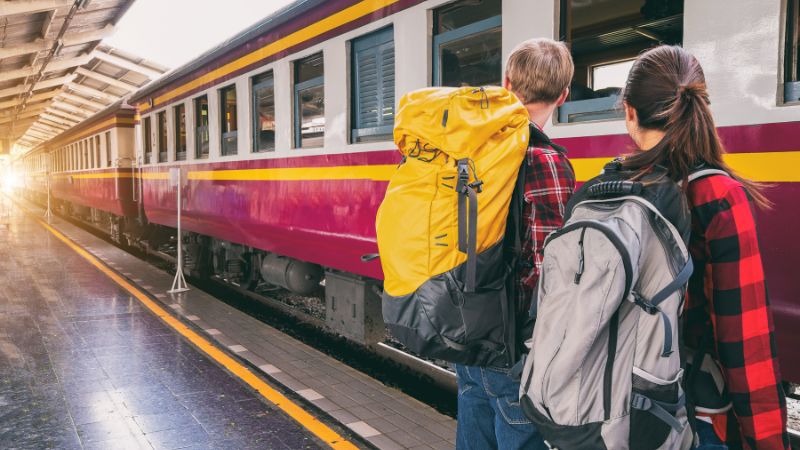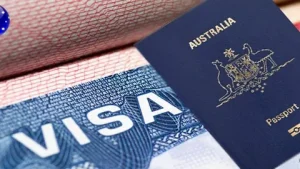Travel & Hospitality
The Growth of Wellness Retreats Destinations for Mind and Body

In recent years, the wellness industry has experienced unprecedented growth, with wellness retreats emerging as a significant trend. These retreats, which focus on holistic health and well-being, offer participants the opportunity to rejuvenate both mind and body. This article explores the factors contributing to the growth of wellness retreats, the various types of retreats available, and their benefits. The discussion also delves into some of the most popular destinations for wellness retreats and the future outlook for this burgeoning industry.
Rise of Wellness Retreats
The concept of retreating from daily life to focus on health and well-being is not new. Ancient civilizations, including the Greeks and Romans, had dedicated spaces for relaxation and healing. However, the modern wellness retreat has evolved significantly, incorporating contemporary health practices and holistic approaches that cater to a diverse audience.

Image by: yandex.com
Societal Shifts
Several societal shifts have contributed to the growth of retreats. Increasing urbanization and the fast-paced nature of modern life have led to higher stress levels and a greater need for mental and physical rejuvenation. Additionally, the rise of the health and wellness movement, driven by a growing awareness of the importance of self-care, has fueled demand for wellness-focused experiences.
Technological Advancements
Advancements in technology have also played a role in the growth of wellness . The proliferation of social media and digital platforms has made it easier for retreat centers to market their services and reach a global audience. Online booking systems and virtual consultations have streamlined the process of selecting and preparing for a retreat, making it more accessible to a wider demographic.
Types of Wellness Retreats
Yoga and meditation retreats are among the most popular types of retreats. These retreats typically offer daily yoga classes, meditation sessions, and workshops on mindfulness and stress reduction. They are designed to help participants achieve mental clarity, emotional balance, and physical well-being.
Detox and Cleanse Retreats
Detox and cleanse retreats focus on eliminating toxins from the body through specialized diets, juice fasts, and cleansing rituals. These retreats often include nutritional counseling, cooking classes, and spa treatments to support the detoxification process.
Fitness and Adventure Retreats
Fitness and adventure retreats combine physical activity with wellness practices. These retreats may include hiking, cycling, and other outdoor activities, along with fitness classes, personal training sessions, and wellness workshops. They are ideal for individuals seeking to improve their physical fitness while enjoying nature and adventure.
Spa and Relaxation Retreats
Spa and relaxation retreats prioritize rest and rejuvenation through luxurious spa treatments, such as massages, facials, and hydrotherapy. These retreats often feature serene environments, such as beachfront resorts or mountain lodges, providing a tranquil setting for relaxation and self-care.

Image by: yandex.com
Holistic Healing Retreats
Holistic healing retreats offer a comprehensive approach to wellness, addressing the mind, body, and spirit. These retreats may include a combination of yoga, meditation, energy healing, acupuncture, and other alternative therapies. They aim to promote overall well-being and spiritual growth.
Benefits of Wellness Retreats
Mental Health Benefits
Wellness retreats provide a respite from the stresses of daily life, allowing participants to focus on mental health and well-being. Activities such as meditation, mindfulness, and yoga can reduce stress, anxiety, and depression, promoting mental clarity and emotional balance.
Physical Health Benefits
Many wellness retreats offer programs designed to improve physical health, including fitness classes, nutritional counseling, and detoxification protocols. Participants often experience weight loss, increased energy levels, and improved physical fitness as a result of these programs.
Social Connections
Wellness retreats provide an opportunity to connect with like-minded individuals who share similar health and wellness goals. These connections can lead to lasting friendships and a supportive community that extends beyond the retreat experience.
Personal Growth
Participating in a wellness retreat can lead to significant personal growth and self-discovery. Workshops and activities focused on mindfulness, self-reflection, and goal-setting can help individuals gain a deeper understanding of themselves and their life purpose.
Popular Destinations for Wellness Retreats
Bali, Indonesia
Bali has become a top destination for wellness retreats, known for its serene landscapes, vibrant culture, and holistic health practices. Retreats in Bali often feature yoga, meditation, and spa treatments, set against the backdrop of lush jungles and pristine beaches.
Tulum, Mexico
Tulum is renowned for its crystal-clear waters, white sandy beaches, and ancient Mayan ruins. Wellness retreats in Tulum offer a blend of relaxation and adventure, with activities such as yoga, snorkeling, and exploring historical sites.
Costa Rica
Costa Rica’s diverse ecosystems and commitment to sustainability make it an ideal location for wellness retreats. Retreats in Costa Rica often include activities such as surfing, hiking, and eco-tours, along with wellness practices like yoga and meditation.
Sedona, Arizona, USA
Sedona is famous for its stunning red rock formations and spiritual energy. Wellness retreats in Sedona focus on holistic healing, with offerings such as energy vortex tours, crystal healing, and mindfulness practices.
Kerala, India
Kerala, known as “God’s Own Country,” is a hub for Ayurvedic healing and traditional Indian wellness practices. Retreats in Kerala offer Ayurvedic treatments, yoga, and meditation, set in tranquil settings such as backwaters and lush greenery.
Future Outlook for Wellness Retreats
The demand for wellness retreats is expected to continue growing as more individuals prioritize health and well-being. The global wellness industry is projected to expand, with wellness tourism playing a significant role in this growth.
Innovation and Personalization
As the wellness retreat market becomes more competitive, innovation and personalization will be key differentiators. Retreat centers will need to offer unique and customized experiences to attract and retain participants. This may include personalized wellness plans, specialized treatments, and exclusive locations.

Image by: yandex.com
Integration of Technology
The integration of technology will continue to shape the wellness retreat industry. Virtual reality, wearable health devices, and online wellness platforms can enhance the retreat experience, providing participants with additional tools and resources to support their well-being.
Sustainability and Eco-Friendly Practices
Sustainability and eco-friendly practices will become increasingly important in the wellness retreat industry. Retreat centers that prioritize environmental conservation and sustainable practices will appeal to eco-conscious travelers seeking to minimize their impact on the planet.
Conclusion
The growth of wellness retreats reflects a broader societal shift towards prioritizing health and well-being. As individuals seek to escape the stresses of modern life and focus on holistic wellness, wellness retreats offer a valuable opportunity for rejuvenation and personal growth. With a diverse range of retreat options and destinations available, there is something to suit every individual’s needs and preferences. As the industry continues to evolve, innovation, personalization, and sustainability will be key drivers of success, ensuring that wellness retreats remain a popular and impactful choice for those seeking to nurture their mind and body.
Autos & Vehicles
Amtrak Route 128 Westwood MA: Your Convenient Transportation

Amtrak Route 128 Westwood MA is a major transportation node in the Route 128 station. This station is operated by Amtrak and serves as a convenient rail link for both local and long-distance travelers. Route 128 station, located in Westwood, Massachusetts, is famous for its accessibility, modern infrastructure, and prime location on the Northeast Corridor.
Passengers traveling via Amtrak Route 128 Westwood MA enjoy frequent train operations that link major cities like Boston, New York, Providence, and Washington, D.C. The station has parking garages, waiting rooms, ticketing facilities, and easy highway access, making it a popular destination for passengers seeking to avoid downtown traffic. Business travelers and tourists alike depend on this station for its convenient schedules and comfortable rail travel.
Overview of Amtrak Route 128 Westwood MA Station
The Amtrak Route 128 Westwood MA station is officially known as Route 128 Station and is located at:
- 1285 University Ave, Westwood, MA 02090
- This station is an important stop on Amtrak’s Northeast Corridor line. It is also served by MBTA commuter rail, making it an excellent transfer station for both local and long-distance travelers.
- Route 128 Station is well-known for its clean facilities, easy parking access, and convenient location near major highways like I-95 and Route 128.

Why Choose Amtrak Route 128 Westwood MA?
Many travelers prefer Amtrak Route 128 Westwood MA instead of Boston South Station because it offers:
- Less crowded platforms
- Easier parking options
- Faster highway access
- Smooth drop-off and pickup area
- Convenient connections to MBTA commuter rail
For passengers living in the suburbs like Westwood, Dedham, Norwood, Canton, or even Providence, Route 128 is often the best alternative.
Amtrak Route 128 Westwood MA is an important transportation hub in Route 128 station, serving travelers across the Boston metropolitan area. Operated by Amtrak, this station provides convenient rail connections for both regional commuters and long-distance passengers. Located in Westwood, Massachusetts, Route 128 station is known for its accessibility, modern facilities, and strategic position along the Northeast Corridor.
Passengers using Amtrak Route 128 Westwood MA benefit from frequent train services connecting major cities such as Boston, New York, Providence, and Washington, D.C. The station features parking garages, waiting areas, ticketing services, and easy highway access, making it a preferred choice for travelers looking to avoid downtown congestion. Business travelers and tourists alike rely on this station for reliable schedules and comfortable rail journeys.
Amtrak Routes Available at Route 128 Westwood MA
The Amtrak Route 128 Westwood MA station is primarily served by trains operating on the Northeast Corridor. This means you can travel directly to several major cities.
Popular destinations include:
- Providence, RI
- New Haven, CT
- Stamford, CT
- New York City (Penn Station)
- Philadelphia, PA
- Baltimore, MD
- Washington, D.C.
This station is served by major Amtrak services such as:
- Amtrak Northeast Regional
- Amtrak Acela (select trains)
If you are commuting between Boston and New York frequently, Route 128 is a smart station to use.
Amtrak Acela at Route 128 Westwood MA
One of the biggest advantages of Amtrak Route 128 Westwood MA is that it supports select Acela high-speed trains. Acela is Amtrak’s premium service, offering faster travel time and business-class seating.
If you want to reach New York City in less time, Acela trains from Route 128 are a great option. Amtrak Route 128 Westwood MA is an important transportation hub in Route 128 station, serving travelers across the Boston metropolitan area. Operated by Amtrak, this station provides convenient rail connections for both regional commuters and long-distance passengers.
Located in Westwood, Massachusetts, Route 128 station is known for its accessibility, modern facilities, and strategic position along the Northeast Corridor. Passengers using Amtrak Route 128 Westwood MA benefit from frequent train services connecting major cities such as Boston, New York, Providence, and Washington, D.C. The station features parking garages, waiting areas, ticketing services, and easy highway access, making it a preferred choice for travelers looking to avoid downtown congestion. Business travelers and tourists alike rely on this station for reliable schedules and comfortable rail journeys.
MBTA Connection at Route 128 Station
Route 128 Station is not only an Amtrak station it’s also an MBTA commuter rail station.
The MBTA Providence/Stoughton Line stops here, making it easy for travelers to connect between:
- Boston South Station
- Back Bay Station
- Providence Station
This makes Amtrak Route 128 Westwood MA a key transportation hub for both daily commuters and long-distance travelers.
Parking at Amtrak Route 128 Westwood MA
Amtrak Route Parking is one of the biggest reasons travelers prefer Route 128 Station.
Parking Features:
- Large parking garage and surface lots
- Paid parking available daily
- Accessible parking spaces
- Safe and well-lit parking areas
If you’re traveling for a weekend trip or a business visit, Route 128 parking is far easier compared to downtown Boston stations.
Parking Tips:
- Arrive early during peak travel times
- Keep your ticket or payment receipt safe
- Use the garage if traveling during winter for extra protection
The Amtrak Route 128 Westwood MA parking area is ideal for long-distance travelers who want peace of mind while leaving their car behind.
Station Facilities and Amenities
Amenities include:
- Indoor waiting area
- Restrooms
- Ticket vending machines
- Amtrak ticket counter (limited hours)
- Elevators and escalators
- Accessible boarding platforms
- Wi-Fi access in some areas
- Nearby food and coffee options
The station is designed to be comfortable for both short and long waits.
Location and Instructions for Amtrak Route 128 Westwood MA
The station is located close to major highways, making it very easy to reach.
Best ways to reach the station:
- From Boston: Drive south via I-95
- From Providence: Drive north via I-95
- From nearby towns: Use Route 1 or Route 128
The station is near University Avenue in Westwood, which also has shopping centers, restaurants, and business offices.
If you’re using GPS, search Amtrak Route 128 Westwood MA for the most accurate directions.
Ticket Booking Options
Booking tickets for Amtrak Route 128 Westwood MA is simple. You can purchase tickets through:
- Amtrak official website
- Amtrak mobile app
- Ticket vending machines at the station
- Ticket counter (if open)
It’s recommended to book early, especially for Acela trains, as prices rise closer to departure.
Travel Tips for Route 128 Station
If you’re planning to use Amtrak Route 128 Westwood MA, here are some helpful travel tips:
1. Arrive Early
Try to arrive at least 30–45 minutes before departure, especially if you need parking.
2. Keep Your Ticket Ready
Amtrak conductors usually scan tickets onboard, so keep your phone or printed ticket accessible.
3. Choose Your Seat Quickly
On Northeast Regional trains, seating is often open. Boarding early helps you get a better seat.
4. Watch for Platform Announcements
Pay attention to digital boards and announcements, as platform changes may happen.
5. Use Route 128 for Faster Pickup
If someone is picking you up, Route 128 is easier than downtown Boston stations.
Nearby Hotels and Attractions
If you’re traveling through Amtrak Route 128 Westwood MA, there are plenty of nearby hotels and attractions.
Nearby Hotels:
- Courtyard by Marriott Boston Dedham/Westwood
- Hilton Garden Inn Foxborough
- Hampton Inn Boston Norwood
Nearby Attractions:
- Legacy Place Shopping Center
- University Station shopping and dining
- Gillette Stadium (short drive)
- Blue Hills Reservation
This makes Route 128 an excellent stop for both business and leisure travelers.
Is Amtrak Route 128 Westwood MA Better Than Boston South Station?
For many travelers, yes.
Route 128 is better if you:
- Want easier parking
- Prefer less crowded station platforms
- Live outside Boston
- Want faster highway access
South Station is better if you:
- Are already in downtown Boston
- Need access to subway lines
- Want more food and shopping options inside the station
Overall, Amtrak Route 128 Westwood MA is a great alternative for anyone traveling from suburban Boston areas.
Final Thoughts
The Amtrak Route 128 Westwood MA station is one of the best and most convenient train stations in the Greater Boston region. With access to Amtrak Northeast Regional, select Acela services, MBTA commuter rail connections, and easy parking, it is a top choice for both commuters and long-distance travelers.
Consumer Services
How eSIM Can Save You Money While Traveling Internationally

Traveling internationally can often lead to higher costs, especially when it comes to mobile data usage and roaming charges. But there are ways to cut down on these costs and still stay connected. One such solution is eSIM—a digital SIM card that can help you manage your mobile expenses while traveling abroad. Not only can eSIM help you avoid high roaming fees, but it also offers flexibility and convenience in managing your data usage. Here’s how you can leverage eSIM to stay within your budget and make the most of your funds.
Why eSIM Is the Intelligent Option for Cost Savings
1. No Roaming Charges
When you use an eSIM, you won’t face the usual roaming charges that come with using a traditional SIM card abroad. This eliminates the extra costs of roaming services, which often add up quickly.
- Save on daily mobile bills: With eSIM, you can avoid unexpected fees and control your mobile expenses.
- Local Rates: By switching to a local eSIM, you can connect to local networks at local rates, reducing your costs significantly.
This is an especially useful feature if you’re traveling to multiple countries or staying for an extended period, as it allows you to always stay connected without the burden of high roaming fees.

2. Flexible Data Plans
With eSIM, you can easily choose the data plan that best suits your needs, whether you need just a few gigabytes or a more extensive plan. No need to buy a massive unlimited data plan that you might not use.
- Budget-friendly data options: Pay only for the data you need by selecting smaller, tailored data packages like 3GB instead of opting for expensive unlimited plans.
- Tiered plans: Choose a data plan that fits your travel schedule, whether it’s for a day, week, or month.
This level of control over your data expenses can make a big difference when managing your travel budget.
3. Zero Physical SIM Fees
One of the key benefits of using eSIM is that there are no physical SIM card fees, which you would typically incur when purchasing a local SIM card at an airport or store.
- No need for a new SIM card: With eSIM, you simply activate the plan digitally, saving you the hassle of finding local providers or waiting in long lines.
- Cost savings on physical SIM cards: Many providers charge extra for a physical SIM card, especially if you’re purchasing it at the airport or a tourist destination.
By switching to eSIM, you can avoid these added costs.
How to Set Up Your eSIM for International Travel
Setting up an eSIM is simple and can be done before you even leave home, making it an ideal solution for international travelers. Here’s how to get started:
Check Compatibility
- Make sure your device supports eSIM technology. Most modern smartphones, such as the latest iPhones, Samsung Galaxy models, and Google Pixels, support eSIM.
- Ensure that your device is unlocked to accept eSIM profiles from different carriers.
Purchase Your eSIM Before You Travel
- Subscribe to an eSIM plan through a trusted provider before you board your flight. Many providers offer eSIM packages specifically for international travelers.
- You can purchase eSIM plans through the provider’s website or via online marketplaces, so you have everything ready to go once you land.
Activate eSIM on Your Device
- Upon purchasing your eSIM, you’ll typically receive a QR code that you’ll scan through your device’s settings.
- Alternatively, you can activate your eSIM by accessing the carrier settings in your phone’s network settings.
Turn on Data Roaming
- Once the eSIM is set up, ensure that you enable data roaming on your phone. This allows you to use your international eSIM plan seamlessly, and you can start browsing the web or using apps without worrying about unexpected charges.
Additional Tips for Saving Money with eSIM
While using eSIM can save you a lot of money, there are a few additional steps you can take to further optimize your data usage and keep your travel budget intact:
- Use Messaging Apps via Browser: Instead of constantly using mobile data for messaging apps like WhatsApp or Telegram, use their web-based versions whenever possible to save on data.
- Download Offline Maps: Download maps or guides for your destination ahead of time so you can navigate without using data. Google Maps and other map apps allow offline access once you’ve downloaded the relevant areas.
- Use Wi-Fi Whenever Possible: Rely on public Wi-Fi in cafes, hotels, or airports to reduce your data usage.
These simple practices will help you conserve data, which is particularly useful when you have a limited plan.
Managing Emergency Funds for Your Travel
While eSIM helps with your mobile expenses, it’s also important to ensure you’re prepared for other financial challenges during your travels. Here are a few tips for managing emergency funds:
- Borrow from Direct Lenders: If you’re in urgent need of funds, consider borrowing from a direct lender through an online application. This allows you to get quick access to the money you need without unnecessary delays.
- Utilize Savings: Draw from your emergency savings account, which you’ve set aside for travel purposes, to cover any unexpected expenses.
- Ask for Family Support: If you’re in a tight spot, reaching out to family or friends for assistance can be a quick way to get the support you need.
- Break Emergency Savings: If you have an emergency savings fund, don’t hesitate to break into it if necessary. Ensure that you use it strategically for essential expenses.
- Use Liquid Assets: If you have liquid assets (like stocks or bonds), consider liquidating them to cover your travel needs.
Conclusion: Why eSIM is a Game Changer for Travelers
eSIM is revolutionizing how we manage mobile expenses while traveling abroad. By eliminating roaming charges, offering flexible data plans, and removing the need for physical SIM cards, eSIM makes it easier to stay within your budget while traveling. Combine it with the right financial strategies, and you’ll be able to manage your travel experience more efficiently, without the stress of escalating bills.
When traveling abroad, eSIM is not just a tool for staying connected—it’s a smart way to keep your finances on track. Use it wisely and pair it with emergency fund management to optimize your spending and ensure a smoother, more affordable trip.
Development
Australian Migration: Expert Support for Travel Dreams

Australia is not just a country people visit—it is a place people fall in love with. From iconic city skylines and pristine beaches to world-class education and global career opportunities, Australia has a way of turning short trips into lifelong dreams. Many travelers arrive with a suitcase and a return ticket, only to realize that they want to stay longer and build a future here.
The journey from traveler to resident, however, requires more than excitement. Australian migration visa rules are detailed, structured, and constantly evolving. Without proper guidance, even well-intentioned travelers can feel lost. This is where professional migration support becomes the key to a smooth and stress-free transition.
When Travel Experiences Lead to Migration Goals
For most people, migration begins with travel. A student comes for education, a professional arrives on a temporary work visa, or a visitor explores the country while meeting family or friends. Over time, Australia’s lifestyle, safety, and opportunities begin to feel like home.
Common travel experiences that often lead to migration decisions include:
- Studying at Australian universities and adapting to local culture
- Working temporarily and gaining international experience
- Visiting loved ones and forming long-term relationships
- Exploring different cities to find the right lifestyle fit
As these experiences grow, travelers start asking important questions about extending their stay legally. At this stage, guidance from experienced Australian visa professionals
helps travelers understand which pathways are realistic and suitable for their long-term plans.

Why Expert Guidance Makes Travel-to-Migration Easier
Australia’s immigration system is built on strict criteria, documentation accuracy, and timelines. Relying on outdated online advice or informal suggestions can lead to refusals or unnecessary delays.
Professional migration agents simplify the process by:
- Reviewing travel history, qualifications, and skills
- Identifying visa options that align with future goals
- Ensuring documentation meets legal requirements
- Managing deadlines and communication
For travelers, this level of support feels similar to hiring a local guide while exploring a new country. Instead of uncertainty, there is structure and confidence at every step.
Visa Pathways That Appeal to Travelers
Australia offers a wide range of visa options that naturally suit travelers who want to stay longer or settle permanently. Each pathway serves a different purpose and requires careful planning.
Popular options include:
- Student visas with post-study work opportunities
- Skilled migration visas for qualified professionals
- Employer-sponsored visas for experienced workers
- Partner and family visas for genuine relationships
Choosing the wrong pathway can slow down progress or close future options. That’s why travelers often turn to licensed MARA migration advisors in Australia
who ensure every decision supports both current travel plans and future residency goals.
How Migration Agents Support the Travel Journey
Migration experts understand that for travelers, migration is not just a legal process—it is a life transition. Their role goes beyond form filling and application submission.
They assist travelers by:
- Creating personalized migration strategies
- Explaining risks, timelines, and realistic outcomes
- Preparing applicants for visa changes and extensions
- Offering guidance even after approval
This ongoing support allows travelers to focus on settling into Australian life—finding housing, adjusting to work culture, and exploring new surroundings—without constant stress about visa compliance.
Turning a Temporary Stay Into a Long-Term Plan
Many travelers arrive in Australia without knowing how temporary visas connect to permanent residency pathways. With the right guidance, short-term stays can be transformed into structured long-term plans.
Migration professionals help travelers:
- Understand how current visas affect future options
- Avoid actions that may harm eligibility
- Plan education, work, and location strategically
- Stay compliant with Australian immigration laws
This long-term perspective ensures that each step taken today supports future opportunities rather than limiting them.
Trust and Transparency While Living Abroad
When living or traveling in a foreign country, trust becomes essential. Travelers want professionals who are honest, transparent, and focused on lawful outcomes rather than shortcuts.
Reliable migration guidance is defined by:
- Clear and realistic assessments
- Ethical and compliant processes
- Consistent communication
- Focus on sustainable migration outcomes
This trust gives travelers peace of mind, allowing them to enjoy Australia’s lifestyle without constant anxiety about their legal status.
Migration Is a Journey, Just Like Travel
Just as travel requires planning, budgeting, and preparation, migration demands patience and informed decisions. Rushing applications or following incorrect advice can lead to setbacks that delay dreams for years.
Australia rewards those who plan carefully. With expert support, travelers can move confidently from visitor status to long-term residency, creating a future that aligns with their aspirations.
Final Thoughts
Australia attracts people with its beauty, but it keeps them with opportunity. Turning a travel experience into a stable future requires more than passion—it requires expert guidance and careful planning.
With professional Australian migration support, the visa process becomes clear, organized, and stress-free. Just like every great journey deserves a reliable map, your migration journey deserves trusted experts who understand both the legal framework and the dreams that drive it.
-
Business3 years ago
Cybersecurity Consulting Company SequelNet Provides Critical IT Support Services to Medical Billing Firm, Medical Optimum
-
Business3 years ago
Team Communication Software Transforms Operations at Finance Innovate
-
Business3 years ago
Project Management Tool Transforms Long Island Business
-
Business2 years ago
How Alleviate Poverty Utilized IPPBX’s All-in-One Solution to Transform Lives in New York City
-
health3 years ago
Breast Cancer: The Imperative Role of Mammograms in Screening and Early Detection
-
Sports3 years ago
Unstoppable Collaboration: D.C.’s Citi Open and Silicon Valley Classic Unite to Propel Women’s Tennis to New Heights
-
Art /Entertainment3 years ago
Embracing Renewal: Sizdabedar Celebrations Unite Iranians in New York’s Eisenhower Park
-
Finance3 years ago
The Benefits of Starting a Side Hustle for Financial Freedom






























